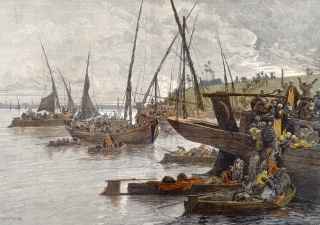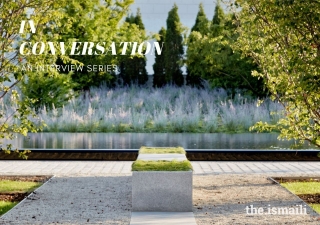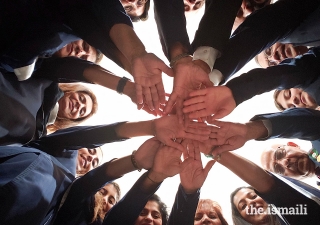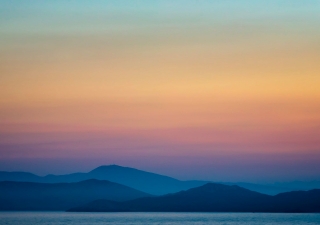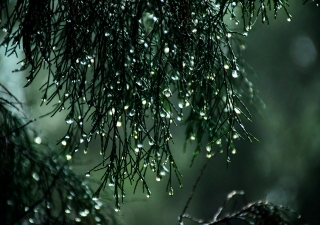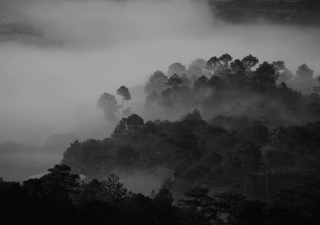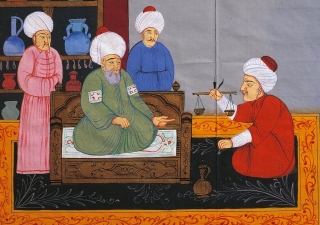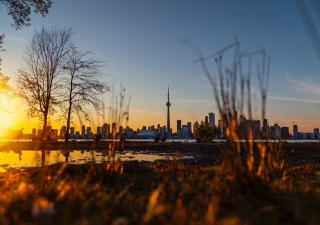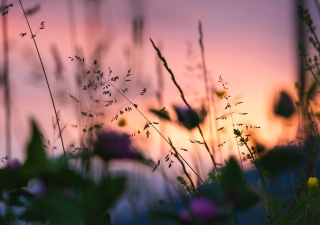Features
Paintings, literature, and films, amongst other forms of art, are repositories of a society’s collective memory. They have much to tell us about prior pandemics, their impact, and what we can learn from these impressions today.
When Lebanese landscape architect Vladimir Djurovic was commissioned to design the Aga Khan Park in Toronto in 2005, Mawlana Hazar Imam suggested he take a tour of Islamic gardens and architecture around the world, ranging from Fatehpur Sikri in India to Alhambra in Spain. In this interview, he explains how the research trip helped his design of the Aga Khan Park to capture the essence of the Islamic garden.
How does one define their role and value in society, or one’s purpose in life? Are we atomised beings moving through life in a random fashion or connected and “born of a single soul,” as the Qur’an informs us? How are we connected, and what is an individual without a community?
As we navigate through this uncertain time, it is important to acknowledge the changes that we are going through. It can be helpful for students to seek support and engage in activities that will encourage us to stay rational, kind, and compassionate to ourselves and towards others.
Screening exclusively on The Ismaili TV, this three-part documentary series features the transformational work of the Aga Khan Trust for Culture in the cities of Kabul, Lahore, and Delhi. Look out for all three parts at the.ismaili/tv.
We are living in a different world compared to just three months ago. Critical parts of our lives have been uprooted and turned upside down, which has led to a further spiral of worry and stress. We want to be helpful, so we tend to share information that comforts and reassures us - however, this doesn’t necessarily mean it’s accurate, and in fact, it often contributes to the growing uncertainty.
The Covid-19 pandemic, with all the uncertainty and anxiety it has brought, can also awaken a greater appreciation for all we have been blessed with, along with the confidence and determination to face this new, unfamiliar world, and all the challenges it has yet to bring.
As Covid-19 continues to impact communities around the world and fundamentally change how we live our everyday lives, many of us are experiencing a toll on our mental health. Especially during times of uncertainty, it’s important to focus on our mental and emotional well-being in order to navigate these difficult circumstances in a healthy way. Here are some strategies to try in the weeks and months to come.
In contributing to the development of human knowledge, historic Muslim societies laid the foundations of modern science and medicine. Throughout history, Muslim doctors and nurses pushed the boundaries of medical science, and established hospitals and clinics. Today, and especially at the current time, the modern world is indebted to these figures and institutions.
As Ismailis, we have always cared for one another in times of need. As Canadian Journalist Farah Nasser says, by practicing self-isolation and social distancing at this time, we are helping to curb the spread of the virus, and in the process, safeguarding the most vulnerable among us.
In recent days, the global Covid-19 pandemic has taken up the majority of news coverage, social media activity, and general communication. The threat of coronavirus is serious, though it’s important to retain some perspective and remain hopeful.
Ces derniers jours, la pandémie mondiale du Covid-19 a concentré toute l’attention médiatique, l’activité des réseaux sociaux ainsi que l’information générale. Bien que la menace du coronavirus soit sérieuse, il n’en demeure pas moins important de prendre du recul et de garder espoir.

